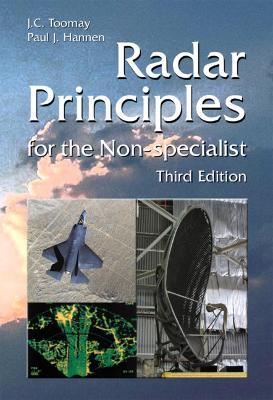Radar Principles for the Non-specialist, 3rd Edition continues its popular tradition: to distil the very complex technology of radar into its fundamentals, tying them to the laws of nature on one end and to the most modern and complex systems on the other. It starts with electromagnetic propagation, describes a radar of the utmost simplicity, and derives the radar range equation from that simple radar. Once the radar range equation is available, the book attacks the meaning of each term in it, moving through antennas, detection and tracking, radar cross-sections, waveforms and signal processing, and systems applications. At the finish, the reader should be able to do an acceptable, first order radar design and to critique the design of others. Students, engineers, scientists and managers will benefit from this book. The more noticeable enhancements to the third edition are the additions of equation numbers, more numerical examples, tables and figures showing many of the concepts numerically, and exercises for almost all of the concepts. These enhancements make the book easier to learn from and easier to teach out of.

Radar Principles for the Non-Specialist
Radar Principles for the Non-specialist, 3rd Edition continues its popular tradition: to distil the very complex technology of radar into its fundamentals, tying them to the laws of nature on one end and to the most modern and complex systems on the other. It starts with electromagnetic propagation, describes a radar of the utmost simplicity, and derives the radar range equation from that simple radar. Once the radar range equation is available, the book attacks the meaning of each term in it, moving through antennas, detection and tracking, radar cross-sections, waveforms and signal processing, and systems applications. At the finish, the reader should be able to do an acceptable, first order radar design and to critique the design of others. Students, engineers, scientists and managers will benefit from this book. The more noticeable enhancements to the third edition are the additions of equation numbers, more numerical examples, tables and figures showing many of the concepts numerically, and exercises for almost all of the concepts. These enhancements make the book easier to learn from and easier to teach out of.